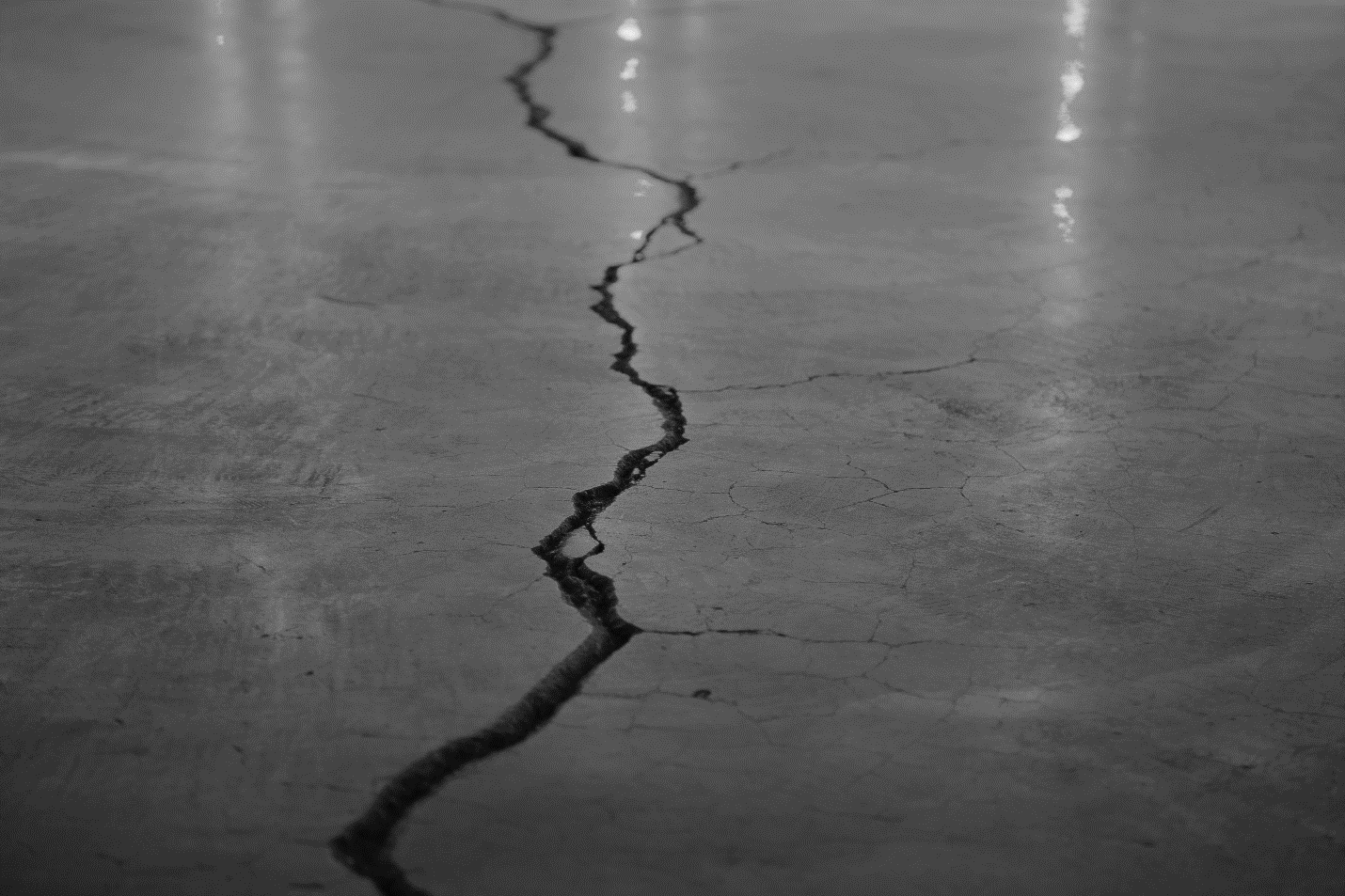Providing your concrete with a water seal is vital for the long-term health of your concrete space, whether a driveway, patio, or indoor area. This is because water can do a tremendous amount of damage to your concrete if left unchecked. And while there are many kinds of sealants to choose from, we believe that the best option is a water-based acrylic sealer.
Let’s review some of the ways that concrete can be damaged by water without a seal…
Without a Concrete Water Seal, Water Can Break Down Your Concrete…
Concrete is an incredibly porous material. As a result, water can seep into it and begin to break down the concrete from within. As the concrete breaks down, cracks can appear and even cause your slab to shift or move. This is why it’s so important to get water off of your concrete before it seeps down into it. And one of the easiest ways to protect against this kind of water damage is with a concrete water seal.
Without a Concrete Water Seal, Freezing and Thawing Water Can Destroy Your Concrete…
Your concrete can be damaged by water without a seal when water gets into your concrete and freezes, then thaws. This is particularly common during the winter months, especially if you live in a location where temperatures drop for a sustained amount of time. As water freezes and thaws, the expanding and contracting that takes place within the concrete will eventually wear it down. Again, this can lead to cracks and unwanted movement.
Without a Concrete Water Seal, Bacteria Growth Can Damage Your Concrete…
But these aren’t the only ways that excess water can affect your concrete. When you combine high humidity, increased temperatures, and a porous material filled with pollen, salt, and dust, you have the perfect environment for mold and bacteria growth. And as mold grows on and in your concrete, it releases acid that can damage it at several levels. This is another reason why it’s best to keep water off of your concrete as much as possible.
Although sealing your concrete won’t protect it from drainage problems, groundwater, and other moisture sources that come from below, it will protect it from excess rain, snow, etc.
Protecting Your Concrete from Water Damage
An effective acrylic seal will repel water and keep it from being absorbed into the surface of your concrete. But that’s not all. It will also enhance the overall look of your concrete. This is why no concrete job is complete until it’s been sealed.
But which kind of concrete water seal should you use? After all, there are solvent-based and water-based varieties. Although each type has pros and cons, we highly recommend using a water-based sealant for various reasons, including…
- A water-based sealant is safer to apply since it doesn’t have the high VOCs that solvent-based sealers have.
- It is easier to apply to concrete and less likely to leave a mess afterward.
- Water-based sealant won’t drastically alter the appearance of your concrete or leave it with a slippery gloss.
In addition to the above benefits, modern water-based sealants still offer the same protection level as solvent-based ones and their lifetimes are comparable. To put it simply, there’s no real reason to go with a solvent-based solution unless you want to achieve a gloss look or darken the color of your concrete.
Here are the best concrete sealer options for your project. To purchase, search for a concrete sealer distributor near you.
